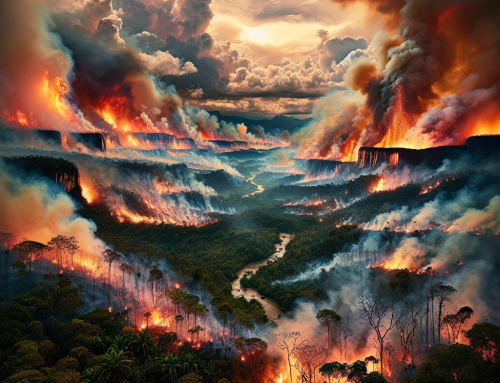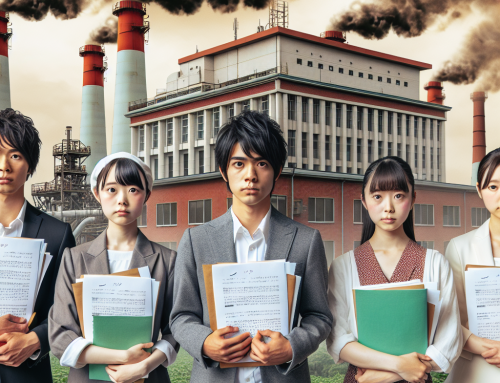
The effects of extreme weather on major North American events and businesses are becoming increasingly apparent, as highlighted by the recent incident at the Burning Man festival in Nevada. Intense rain and flooding left over 70,000 festival attendees stranded, underlining the significant impact of these climatic changes.
The theme park industry, a major player in North America’s entertainment sector, has been particularly hit hard by these conditions. Companies such as Six Flags, SeaWorld, and Cedar Fair have faced a myriad of disruptions due to extreme weather conditions including flooding, heatwaves, and wildfires.
In response to these changing climate conditions, these companies are making considerable adjustments to their operations. Strategies include building indoor rides and altering their ticket policies. Cedar Fair has seen the direct impact of these extreme weather conditions on its business, reporting a drop of 300,000 visits during a recent quarter. These losses were attributed to major climate events such as Canadian wildfires and California heatwaves.
Six Flags is also taking proactive measures to mitigate the effects of increasing temperatures. The company has added shaded structures, water misters, and air-conditioned areas across its parks. Moreover, the company has plans to construct more indoor facilities to ensure comfort and safety of its visitors, even during the harshest weather conditions.
The threats posed by climate change and extreme weather conditions are not limited to these companies. Even globally renowned theme parks like Disney World are feeling the heat. A report by the nonprofit organization CDP has warned that theme parks are facing significant threats from hurricanes, wildfires, heatwaves, and droughts. The report also states that these parks are not doing enough to combat climate change.
The report has also emphasized the risks faced by Disney World due to rising sea levels and hurricanes. Given the location and size of Disney World, these risks could have significant implications for the company and its millions of visitors. The report urges theme parks to reduce their carbon emissions and adapt to the changing climate, not just for their profitability, but for the safety and enjoyment of their visitors as well.
As extreme weather conditions continue to escalate, it is imperative that theme parks and other businesses adapt and innovate. Not only to ensure their survival in a changing world, but also to contribute to the broader effort to mitigate the impact of climate change.






